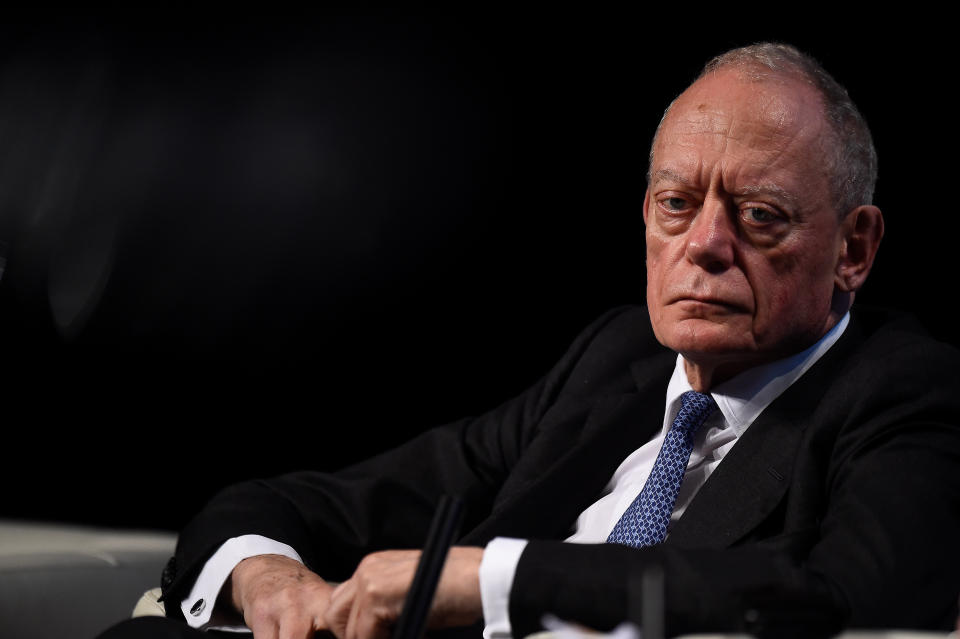Barclays has spent up to £200m on Brexit preparations

Barclays (BARC.L) has spent between £100m and £200m ($257m) preparing for Brexit, the chairman of its UK bank, Sir Gerry Grimstone, said on Wednesday in Dublin.
The expanded Dublin unit of Barclays, which is set to become its European headquarters, is expected to absorb around £224bn of its total £1.17tn in assets by 30 March.
Bank of America (BAC), which has also chosen Dublin for its main post-Brexit EU hub, said in November that it had spent around $400m (£309m) on its Brexit restructuring efforts.
Also speaking in Dublin on Wednesday, Bank of America vice-chairman Ann Finucane said that, considering that many financial institutions were spending similar amounts on Brexit preparations, “it adds up.”
“I hate to say that we’re more cost effective than [Bank of America],” Grimstone said. “We’ve certainly spent 100m, 150m, 200m – but yes we’ve spent less than them.”
Barclays last month got the green light for the transfer of more than £150bn in assets to Dublin, after the London High Court said the bank could not wait any longer to implement its Brexit contingency plans.
READ MORE: Barclays ‘cannot wait any longer’ for its £166bn Dublin move
Around 6,800 Barclays clients, mainly from the European Economic Area, will be transferred to Dublin by 30 March, when the bank expects to be fully operational there.
Speaking about the Irish regulatory authorities, Grimstone said that “the process over the last two years has been as smooth as we possibly could have wanted it to be.”
“We’re impressed with the nature and scale of regulation. It’s a new adventure for us — being regulated by the Irish Central Bank and through them, the ECB,” he said.
He noted that Barclays had not been “dragged kicking and screaming” to Ireland. “When you’re faced with regulatory or political change, you have to do things which you perhaps wouldn’t do otherwise,” he said.
“So we used the opportunity to create a major new European continental bank, which will centre on Dublin.”
Grimstone warned, however, about the impact of Brexit on conditions in London.
“The United Kingdom has gone from being one of the most predictable environments in which to operate to one of the least predictable.”
“There’s got to be a very high priority in restoring that predictability,” he said. “The challenge we all have is that nobody knows what is going to happen over the next few weeks.”
Both Grimstone and Finucane were speaking at the European Financial Forum, which was organised by the Financial Times and IDA Ireland.

 Yahoo Finance
Yahoo Finance 
